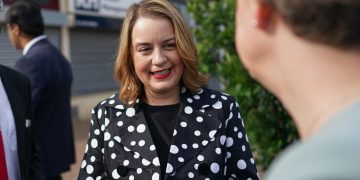Via a new forum, the U.K. government will scrutinize the future of linear TV broadcasting based on research published Friday showing some viewers could be excluded from a general shift toward streaming.
Senior representatives from U.K. regulator Ofcom, TV broadcasters, infrastructure operators and organizations representing audiences will form a new working group, convened by media minister Stephanie Peacock.
It comes after a Department for Culture, Media and Sport-commissioned report, led by Exeter University and a group of independent researchers, looked at the U.K.’s current television delivery and consumption trends.
The report found that 95 percent of households will have the capacity to watch TV over the Internet by 2040, but 5 percent, or 1.5 million people, will still rely on traditional linear broadcasting by the same year unless the government intervenes. This group tends to be significantly older, have a lower socioeconomic status and live in rural communities.
“Streaming has revolutionized the television industry,” Peacock said. “Viewers have never had more choice over what to watch and how to access content. As the shift toward streaming and watching live broadcasting online continues, it is vital that no one is left behind. I want to ensure that as many people as possible can watch TV in a way that suits them.”
The new forum will consider how all viewers — including older people and those without Internet connectivity on their TV — can continue to access British content as a wider audience moves online.
The group will consult with key stakeholders on how changing viewing habits and the rise in audiences watching shows over the Internet will impact the future of TV broadcasting. It will also focus on the pressure this puts on cost-effectively delivering traditional broadcast television.
Gill Hind, COO and director of TV at Enders Analysis, Richard Lindsay-Davies, CEO of trade body Digital TV Group, and Department of Culture, Media and Sport (DCMS) College of Experts academic Catherine Johnson will chair three smaller working groups supporting the forum, representing the TV sector, infrastructure and audience groups. They will meet separately to gather evidence and drive forward policy development ahead of the larger forum discussions.
The forum is due to meet quarterly, starting later this month.















